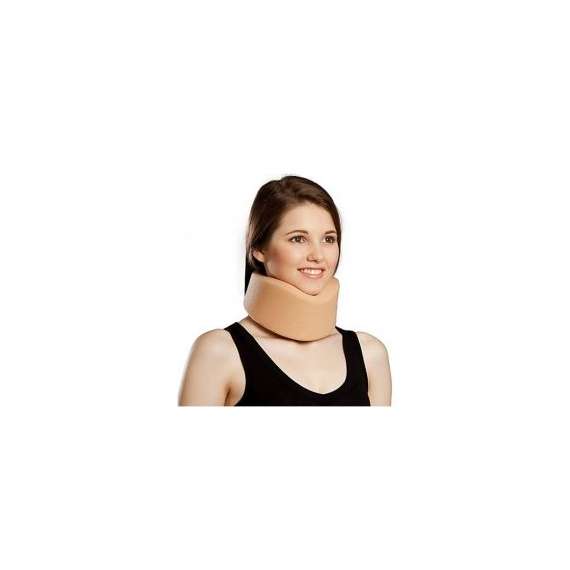Soft Neck Collar
Description
Description
Soft Cervical Collar
Soft collars are usually made from foam materials. snugly fits around your neck and sit below your jaw. Some doctors may prescribe them for temporary relief from moderate neck pain. Soft collars are unlikely to help manage more serious neck injuries. Soft Cervical Collar is worn on the neck and used to therapeutically help realign the spinal cord, support the neck, and help relieve pain. Soft Cervical Collar is the least limiting.
A soft cervical collar is recommended only for acute soft-tissue neck injuries and for short periods of time, On average, most people wear the soft collar for 1–6 weeks. In some cases, it may be necessary to wear your soft collar for a longer time. Only your spine physician may tell you when you can stop wearing the collar.
Some conditions that may require the use of a cervical collar include the following:
- Whiplash and trauma. If you’ve been in a car accident or sustained some other kind of injury, like a fall, a cervical collar may protect your neck and prevent further injury.
- Neck surgery. A cervical collar helps to prevent injury after surgery by limiting rotation, as well as side-to-side and back and forth movements.
- Nerve compression. Cervical collars are occasionally used to reduce pressure on the nerves in the neck.
- Cervical spondylosis. A cervical collar may cause temporary relief from pain caused by cervical spondylosis — an age-related condition that’s caused by wear and tear of cartilage and bones in the neck.
- General neck pain or stiffness. A cervical collar may help to take some strain off your neck muscles.
Tips for wearing a cervical collar
If you need to wear a cervical collar, your healthcare provider will likely give you specific instructions about what you should and shouldn’t do while wearing it.
In general, when wearing a cervical collar, it’s best to:
- Move instead of resting or sitting too much. Gentle movement, like walking, can help prevent your neck muscles from stiffening up. Stiff muscles may prolong your recovery.
- Focus on good posture. Try not to slouch or hunch over. Keep your back straight, shoulders back, head straight with your ears positioned over your shoulders.
- Avoid sitting in soft, low chairs. This can affect your posture and put extra pressure on your neck.
- Avoid lifting or carrying anything heavy. Also avoid strenuous activity, like running, or another high-impact movement.
- Leave your collar on at all times, except when cleaning it or as directed by your healthcare provider.
- Make sure your collar fits tightly but is comfortable. If the collar doesn’t fit tightly enough, it likely won’t provide the support you need, which could cause further pain or injury. If it’s too loose, it could rub against your skin and cause irritation or blisters.
SIZES
Small-25cm-30cm
Medium-30cm-35cm
Large-35cm-40cm
XL-40cm-45cm
XXL-45cm-50cm
Features
- Neck
Reviews
No reviews found

